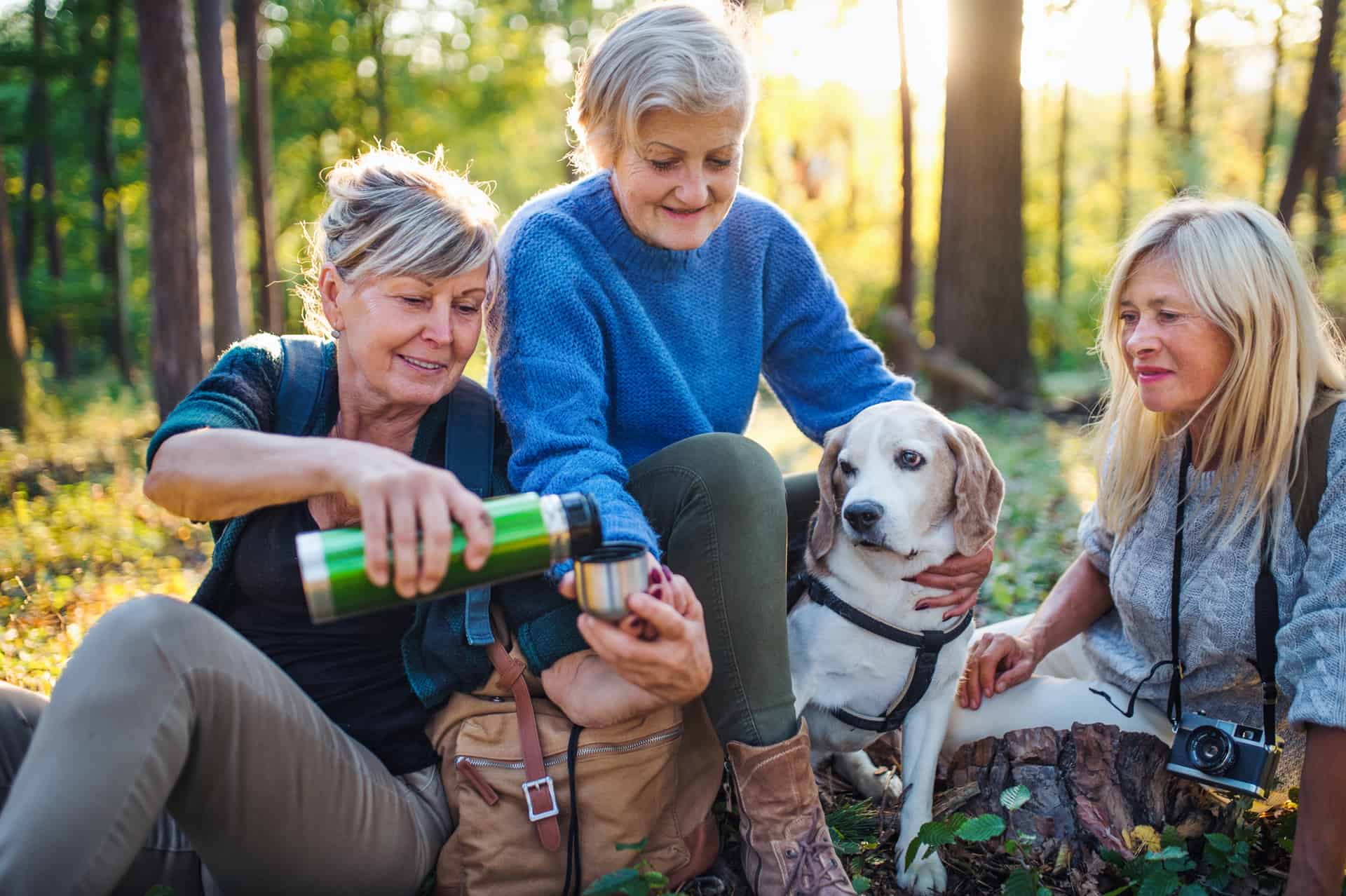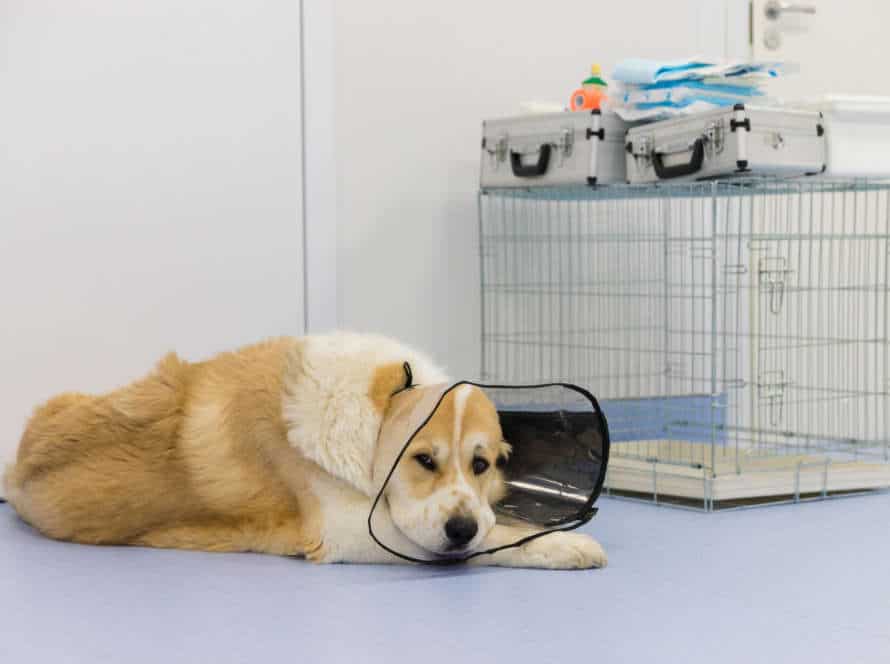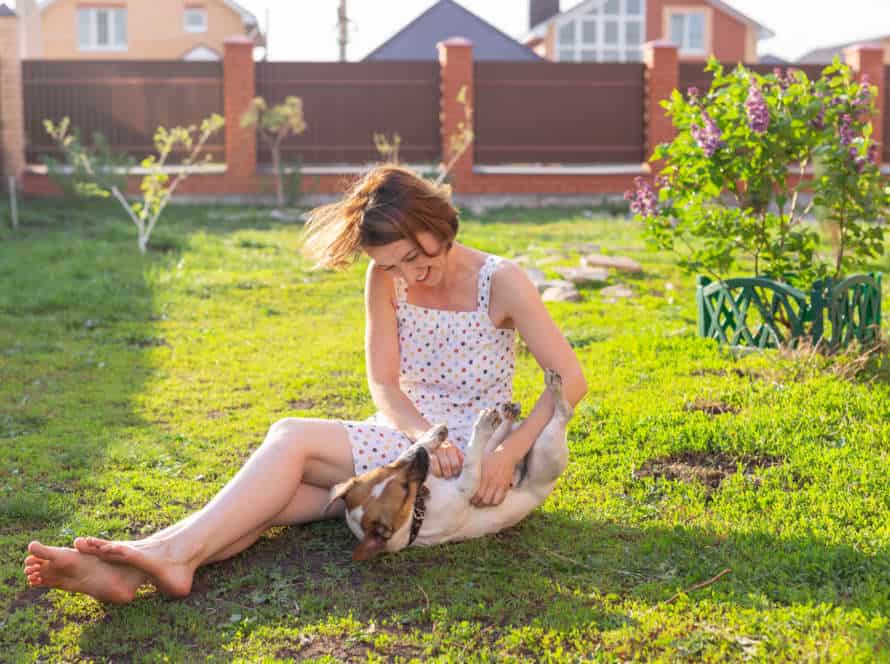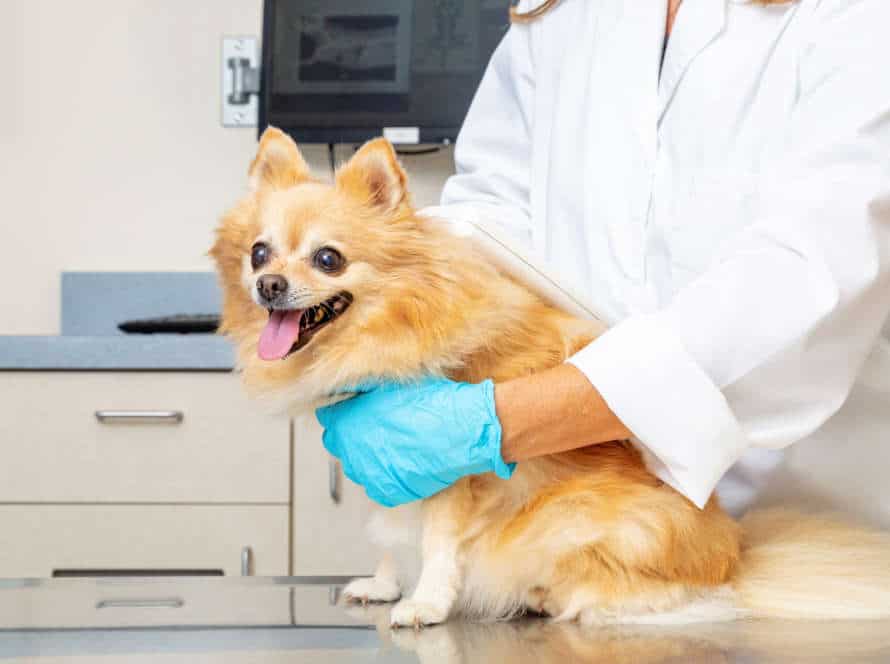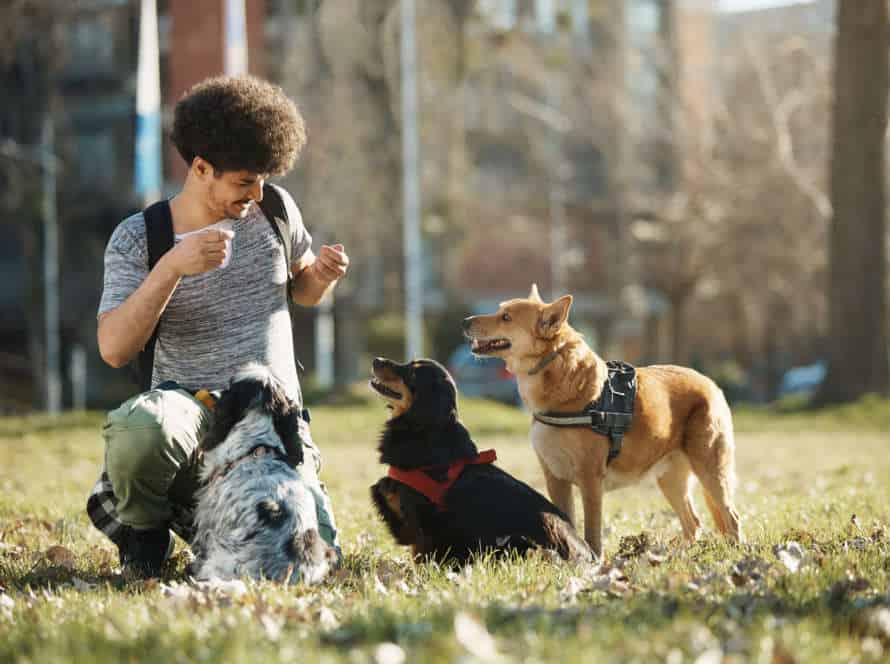Adult Dog Training: Is It Ever Too Late?
It’s never too late to train an adult pooch! Patience, consistency and dedication are all musts when trying to teach an adult dog. They may have their habits, but they can still learn new skills with proper training.
Focus on positive reinforcement and consistency in the process. Here’s some advice:
- Start off with basic obedience commands – “sit”, “stay”, “come” and “leave it”.
- Encourage good behaviour with treats, praise and affection.
- Stick to a training schedule, and do short, frequent sessions.
- If you’re feeling overwhelmed, or your pup has behavioural issues, contact a professional trainer.
Remember, training an adult dog takes time, effort and patience. But, the rewards of having a well-trained dog are totally worth it!
Understanding Adult Dog Behavior
Learning to train an adult dog? It can be tricky! Many assume it’s too late to teach an older pup, but that is not always so. To educate a grown pooch, you need to grasp their special behaviors and motivations. This can be hard to figure out. In this part, we’ll talk about understanding adult dog behavior and the correct methods for training them.
Common behavioral issues in adult dogs
Adult dogs may display a variety of undesired behaviors. These can include barking, chewing, digging, aggression, and separation anxiety. Reasons for these behaviors may be incorrect training, insufficient exercise or socialization, or changes in the environment.
Identifying the source of the issue is essential to resolving it. Positive reinforcement, consistency, and patience are all important factors. Training an adult dog is possible, although it may take more time than training a puppy.
If you are having difficulty with an adult dog’s behavior, seek help from a professional dog trainer or behaviorist. With the correct methods and effort, most behavioral issues in adult dogs can be successfully handled.
Identifying the root cause of a behavioral problem
It’s essential to find the source of behavior issues in adult dogs. Popular problems are aggression, fear, separation anxiety, destruction, and barking too much. Here are some tips to spot the root cause:
- Observe the pup – take note of things that bother them.
- Check for medical or bodily issues.
- Think about their past – past abuse or traumas might be at fault.
- Look at your tactics – make sure you are rewarding good behavior.
- Once you know the root, make a plan to train your pet.
Remember, you can still train an adult dog – with a bit of patience, time and effort.
Exploring how adult dogs learn
Mastering how adult dogs learn is a must for successful adult dog training. Adult pooches come with their own unique life experiences and behaviors, which means they need special handling compared to puppies. Here are some key things to remember:
- Previous experiences: Adult canines have already formed habits and behaviors because of past events.
- Training approach: Each pup has a special way of learning that trainers must take into account.
- Patience: Adult doggies require patience and dedication. It may take longer for an adult pup to unlearn bad behaviors and learn new ones.
- Reinforcement: Positive reinforcement is paramount for successful adult dog training. Rewards must be immediate, consistent, and pleasurable for your pup.
- Socialization: Socializing an adult dog is essential as they may have previously developed social fears or aggressive behavior.
It’s never too late to train an adult dog. With commitment, patience, and the right attitude, any adult dog can learn and change their behavior.
Benefits of Training for Adult Dogs
Training an adult dog has its perks! It can help strengthen the bond between pup and owner. Plus, it’s mentally stimulating! Your pet can learn new tricks and behaviors, and it might even help with problem barking and destructive behaviors.
Let’s explore the benefits of training your adult pup!
Improved obedience
Training an adult pup has oodles of advantages, like better obedience. An adult dog can acquire new habits and behaviors that strengthen their life quality. Here are some ways adult dog training can help with obedience:
- Reinforcing basic commands such as “sit,” “stay,” and “come.” This not only keeps your pup safe, but also builds a strong foundation for more complex orders.
- Socializing. It can better obedience by teaching the pup how to socialize with other canines and humans properly.
- Behavior adjustment. Training can address undesirable behaviors like nipping, leaping, and too much barking. Fixing these behaviors can lead to better obedience overall.
Pro Tip: Adult dog training might be tricky, but your pup is able to learn new things and improve their behavior no matter their age. With patience, consistency, and positive reinforcement, you can deepen the bond with your pup and improve their life quality.
Reduced Aggression and Fear
Training can provide lots of advantages to adult dogs. It can reduce aggression and fear. You can teach your adult dog suitable socialization skills. This helps them interact with other animals, dogs and people without feeling scared. It can also lead to a decrease in aggressive and fearful behavior.
Training sets boundaries and encourages good behavior. This helps your dog gain assurance and prosper in social scenarios. It is also good for alleviating separation anxiety and improving your pet’s general well-being.
So, it is never too late to start training your adult dog. With patience, constancy and positive reinforcement, you can help your pup reach their highest potential and live their best life.
Further Socialization Opportunities
Training isn’t just for puppies! It’s an important part of caring for adult dogs too and it’s never too late to teach them new things. Plus, it offers more socialization opportunities.
Here are the benefits of adult dog training for socialization:
- Addressing behavioral issues like aggression, separation anxiety and leash-pulling.
- Opportunities to interact with other people and pets in a controlled environment.
- Reduced stress and anxiety leading to better behaviour and healthier, happier dogs.
By continuing to train and socialize your adult dog, they’ll stay content and happy throughout their life. Tip: Make the training joyful and rewarding – it’ll make them more eager to learn!
Effective Training Methods for Adult Dogs
Is it ever too late to train an adult dog? No! There are ways to do it. Keep in mind that adult dogs have their own habits and behaviors. So, changes can be made. Here are some useful tips for successful training of adult dogs:
Positive reinforcement training
Positive reinforcement training can help adult dogs learn new behaviors. It focuses on rewarding good behavior, not punishing bad behavior. Dogs are more likely to repeat behaviors that are rewarded. Here are the steps:
- Choose a behavior and use treats, toys, or verbal praise as a reward.
- Mark the behavior with a clicker or verbal cue as soon as it happens.
- Give a reward immediately after marking.
- Reduce the frequency of the reward as your dog gets better.
Positive reinforcement works on all breeds, sizes, and temperaments. Remember to be consistent in using these methods. Everyone in the household should reinforce the same behaviors.
Clicker training
Clicker training is a great way to modify adult dog behavior using positive reinforcement. Get a clicker–it’s a small device that makes a sound. Show your dog the clicker and pair it with a reward, like treats or praise. Use the clicker to “mark” good behavior, like sitting or staying. When the clicker is used, immediately give the reward. Repeat this process often, making sure to give a reward each time. With time, your pup will learn that the clicker means something good. Then your furry friend will act the way you want it to!
Crate training and potty training
Crate training and potty training are two good ways to teach adult dogs, regardless of their age.
Introduce your dog to the crate, with the door open. Let them explore it. Then, slowly increase the time they spend inside it.
Potty training takes weeks. Take your pup out every 1-2 hours and praise them when they “go” in the right place. Never punish them for accidents inside. With patience and consistency, any adult dog can be successfully crate trained and potty trained.
Working with a Professional Trainer
Want to train an adult pooch? A pro trainer is your best bet. They know how to meet your pup’s needs and ensure training is effective. Pro trainers understand the most efficient techniques, and will give you the support you need to train your pup successfully.
Choosing a qualified dog trainer
When selecting a professional dog trainer, it is essential! Here’s what to keep in mind:
- Certification & Experience: Look for one who has a recognized cert, such as the CCPDT. Also, check their expertise in handling different breeds and behavior problems.
- Positive Reinforcement: Make sure they use rewards and praise to encourage good behavior.
- Personal Compatibility: Ensure you can easily share goals and values.
- Flexibility: Look for one who is flexible and can customize training to suit your pup’s needs.
Never forget, it’s never too late to work with a pro to improve your dog’s behavior and make your bond stronger.
Understanding the training process
Working with a professional trainer is a great way to make sure you and your pup have the necessary skills to live happily together. Remember these tips:
- Patience is essential – Training takes time, persistence, and rewards.
- Communication matters – Speak and act clearly, consistently.
- Customize your plan – Each dog is unique and needs a specific approach.
- Consider age – Young dogs learn behaviors easier, yet it’s never too late to train.
By working with a pro, you can build a strong connection with your pet and help them be a content and obedient family member. Pro tip – Remain patient and consistent with your efforts. Fact – Dogs can learn at any age.
What to expect from a professional trainer
A pro dog trainer creates a plan just for your pup’s needs. They’ll identify any behavior areas that need improving. The plan might involve obedience, socialization and desensitization techniques.
During training, positive reinforcement rewards good behavior. And they’ll show you how to communicate with your dog and keep up the training at home.
Adult dogs benefit from professional training too! To get the best results, look for a certified trainer with experience and good reviews. Pro Tip: Get a pro!
Challenges Associated with Training Adult Dogs
Training adult dogs is possible, no matter their age. But be aware that, as a pup grows older, it may get harder to train them. This is ’cause grown-up dogs have had more time to learn bad habits that need to be replaced. Let’s look at the challenges of training an adult pup!
Overcoming bad habits
Training adult dogs and overcoming their bad habits can be complex. Factors like age, breed, and past training can affect success. But, it’s never too late! Here are some issues that come with training adult dogs and how to fix them:
- Patience and constancy are key. Make sure to use the same commands, rules, and rewards to show good behavior and eliminate bad habits.
- Socialization and training lack may be a problem. Dogs may have learned bad behaviors or show fear or aggression. Professional help can tackle this.
- Health and mobility struggles can be tough for older adult dogs. Exercise should be adjusted to their physical abilities.
With patience, consistency, and proper training, adult dogs can get rid of bad habits and become great companions.
Addressing fear and anxiety
Training adult dogs can be tricky, but with the right approach, it can be done! Here are some tips:
- Start small – begin with simple exercises and increase difficulty as the dog gets more comfortable.
- Focus on rewards – reward good behavior, instead of punishing bad behavior.
- Be patient – it may take time to reduce fear/anxiety, so be consistent.
Remember, each pup is different and may need a unique approach. With patience and consistency, you can form a strong bond with your pooch.
Pro Tip – If you need help, consult a professional dog trainer.
Taking a patient approach to training.
Adult dog training can be tricky! Here are some of the difficulties you may face:
- Unsocialized dogs can be aggressive to strangers or other dogs.
- Dogs who have been through trauma may show fear or anxiety.
- Older dogs can have habits that are hard to break.
- Age can also bring health issues that make learning difficult.
But, don’t worry! With patience and the right approach, adult dogs can still be trained. Positive reinforcement, consistency, and small steps will get you there. Every dog is unique when it comes to learning, so take time and enjoy the journey with your pup!
Frequently Asked Questions
Q: Is it really possible to train an adult dog?
A: Yes, it is definitely possible to train an adult dog. Dogs are always learning, no matter their age, and it’s never too late to start training them.
Q: Are some breeds easier to train than others?
A: Yes, certain breeds may be more receptive to training than others. However, every dog is unique and individual results may vary.
Q: How long does it take to train an adult dog?
A: The length of time it takes to train an adult dog varies. It will depend on factors such as the dog’s personality, the type of training, and consistency in training sessions.
Q: Is positive reinforcement the best way to train an adult dog?
A: Positive reinforcement is widely considered the most effective and ethical way to train dogs of any age. It promotes good behavior by reinforcing positive actions with rewards, rather than punishing undesirable behavior.
Q: Can you teach an old dog new tricks?
A: Yes, you can absolutely teach an old dog new tricks. Dogs are always capable of learning as long as they are mentally and physically able.
Q: What if my dog has bad habits that are difficult to break?
A: It is never too late to address bad habits in an adult dog. With patience, consistency, and the right training techniques, you can help your dog break old habits and learn new, positive behaviors.

